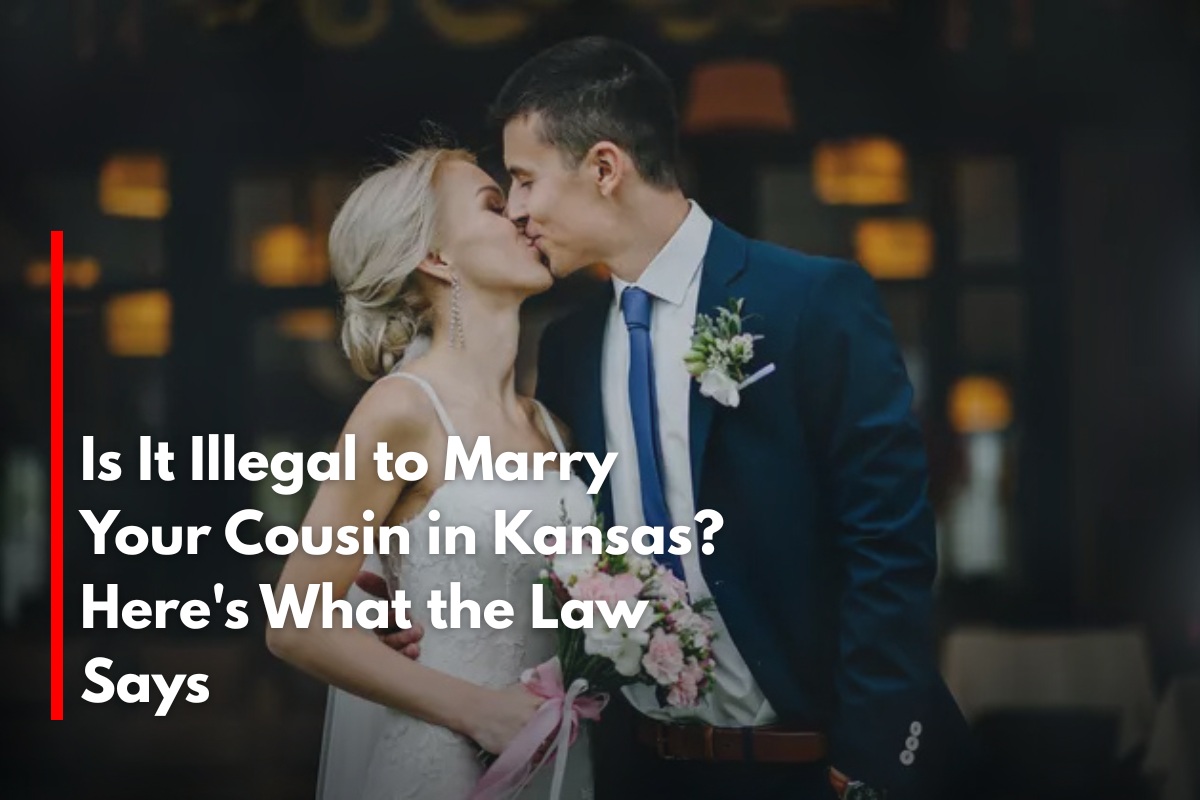In Kansas, marrying your cousin—specifically your first cousin—is illegal. The state’s laws are among the most direct in the nation regarding cousin marriage, and the relevant statute makes it unequivocal: “All marriages between parents and children, including grandparents and grandchildren of any degree, between brothers and sisters of the one half as well as the whole blood, and between uncles and nieces, aunts and nephews, and first cousins, are declared to be incestuous and absolutely void”.
What “Void” Means Under Kansas Law
To be “absolutely void” under Kansas law means that the marriage is not legally recognized from the outset. Any attempt by first cousins to marry in Kansas would not only fail to create a legally valid marriage, but could also subject the participants (and any officiant) to legal consequences. There are no exceptions for age, fertility, or adoption when it comes to first cousins—unlike states with conditional allowances.
Who Can Marry in Kansas? (And Who Can’t)
Kansas marriage law is otherwise relatively straightforward. You can marry if you are:
At least 18 years old (or 16–17 with parental or judicial consent)
Not already married to someone else
Not related closer by blood than second cousins
Specifically, the law bars marriages between blood relatives closer than second cousins. That means while you can marry a second cousin in Kansas, any union closer than that (including first cousins, siblings, nieces/nephews, and aunts/uncles, whether “half” or “whole” blood) is legally forbidden.
Common Law and Out-of-State Marriages
Kansas law generally does not recognize common-law marriages if either party is under 18 or if the marriage would be considered “void” under regular marriage statutes, including those to first cousins.
For out-of-state marriages, Kansas does not recognize first cousin marriages even if they were legally performed in a state where such unions are allowed; the marriage remains “absolutely void” for Kansas residents or within Kansas jurisdiction.
Legal and Social Rationale
The state, like many others, bases its prohibition on traditional concerns about potential genetic risks for offspring and longstanding social norms against consanguineous (closely related) unions. While some legal debates continue over the constitutionality and science underlying such bans, Kansas has maintained its strict stance since the 19th century.
Final Word
If you’re considering marriage to your cousin and live in or plan to marry in Kansas, the law is clear: first cousin marriage is strictly forbidden and void—with no exceptions. The prohibition applies regardless of religious or cultural tradition, and breaking it means the marriage is not legally recognized by the state. If your relationship is with a second cousin (or more distant relative), those marriages are legal in Kansas and face no extra restrictions.
Sources
[1] https://www.ksrevisor.gov/statutes/chapters/ch23/023_025_0003.html
[2] https://codes.findlaw.com/ks/chapter-23-kansas-family-law-code-revised/ks-st-sect-23-2503/
[3] https://www.ulc.org/wedding-laws/kansas
[4] https://wichitadivorceblog.com/blog/when-is-a-marriage-invalid/
[5] https://theamm.org/marriage-laws/kansas











